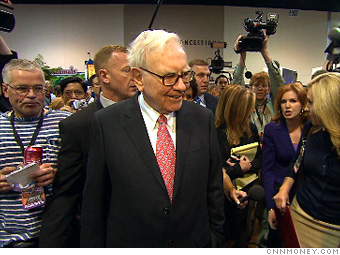21 best money tips ever
Some of the nation's leading business owners, investors, and thinkers share their thoughts on rebuilding your wealth.

Fear is your friend.
The past two years were an "ideal period" for value-minded investors. For example, Buffett managed to scoop up bargains ranging from municipal bonds to securities of Goldman Sachs, GE, and others. "When it's raining gold," he writes, "reach for a bucket, not a thimble."
Focus on the (really) long term.
Buffett notes the investments that he and partner Charlie Munger prefer are "businesses whose profit picture for decades to come seems reasonably predictable." Not the next two months or quarters or years, mind you. Decades.
Stick with what you know.
Against the advice of the firm's managers, Buffett pushed Geico -- the home and auto insurer that Berkshire owns -- into the crowded credit card business several years ago. Geico bailed out in 2009, losing about $50 million in all. The moral: If you don't understand that commodity ETF your pal is bragging about, pass on it.
Maintain a cushion.
While firms were fighting for their lives in the credit crisis, Berkshire kept doing deals. Why? Because Buffett keeps about $20 billion in cash on hand. This reserve is earning "a pittance," he says. "But we sleep well." A reserve will help you sleep better too, especially as you near retirement.
The buck stops with you.
Buffett oversees virtually all derivatives contracts on the company's books. "If Berkshire ever gets in trouble, it will be my fault." You need to adopt the same attitude. Whether you go it alone or work with an adviser, understand the level of risk you're assuming. If something goes wrong, you'll suffer the consequences.
NEXT: Adapt your skills and strategy

